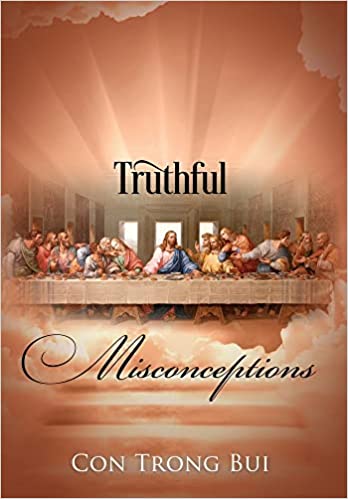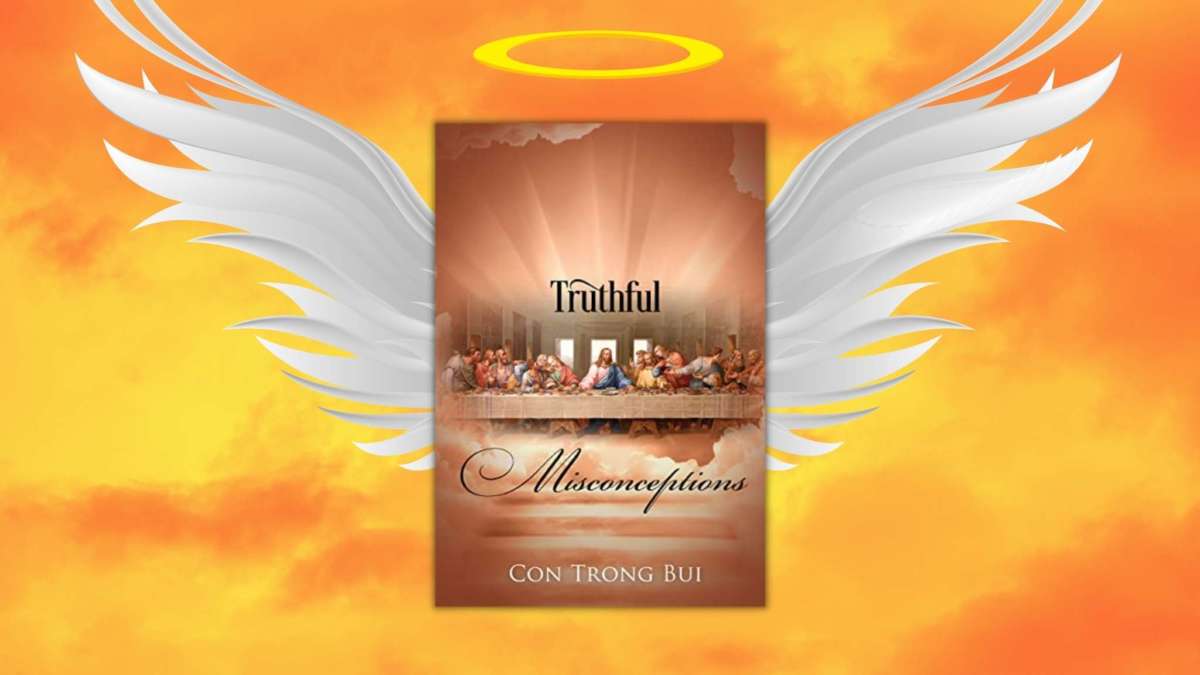Truthful Misconceptions by Con Trong Bui
My childhood pastor believed that questioning God’s word is sacrilege, and I’m aware that he’s not alone in that belief. But seeing as I’m somewhat rebellious in nature, I didn’t accept everything I was fed by the church, much to my pastor’s chagrin. In university, I minored in religious studies — in part to prove that questioning the Bible is an integral part of Christianity, but mostly because asking difficult questions is needed to grow as a person and expand one’s knowledge.
Con Trong Bui puts forth a few difficult questions and provocative assertions of his own in Truthful Misconceptions (Outskirts Press), a book that explores Christian scripture, its symbolism and interpretation thereof, draws intriguing comparisons between Christianity other world religions and comes to unique conclusions about Biblical writings and teachings. Whether or not a reader identifies as a Christian, the author’s ideas are accessable to anyone and provide much to consider about truth and beliefs stemming from religious doctrine.
INTERPRETING THE BIBLE FOR CHRISTIANS AND NON-CHRISTIANS
It’s no secret that the Bible as we know it has been heavily edited throughout the ages. Certain gospels didn’t make the cut because it didn’t align with the Roman Catholic Church’s teachings at the time. What’s more, due to mistranslations, a lot of the original meaning and symbolism was lost. If that’s not enough to concern the faithful to the true meaning of the gospels, we tend to put our faith in the hands of others to interpret a verse or a chapter, and then, we’re told not to question contradictions or underlining meanings.
In his book, Con Trong Bui discusses the limitations of human language in the thinking of esoteric and exoteric; in other words, how symbolism, used as an aid to explain complex concepts, is often taken literally. The author presents readers with different biblical verses that he interprets in an unbiased manner while also examining a variety of topics and themes — faith, reincarnation, spirituality and miracles to name but a few — from angles readers will likely not have encountered before.
ESSENTIAL READING FOR DEEPER UNDERSTANDING
It’s worth noting that Truthful Misconceptions is a companion guide to the Bible, not scripture itself, and ideal for study across a variety of groups. There are some academic leanings in the writing — mathematical calculations and scientific terms that help the reader come to logical conclusions of the Bible — which makes it a perfect fit for theology students’ recommended reading lists. Readers may find a deeper understanding of the scriptures by taking a different, more analytical approach. On the other hand, the writing is also simple enough for non-academic, casual research and Bible study.
Truthful Misconceptions is an enlightening read for anyone who’s interested in exploring different perspectives about the underlining meaning of Christian scripture. Personally, I enjoyed that there was an open-minded quality to the writing and interpretation of the Bible, whether I agreed with the conclusions or not. With this interesting tome of a guide, some age-old interpretations of scripture, which at times can feel incongruous within a modern context, may take on new meaning altogether for readers. Definitely get your hands on Truthful Misconceptions if you’re looking for a new way to read the Bible.
Truthful Misconceptions is available for purchase here.





